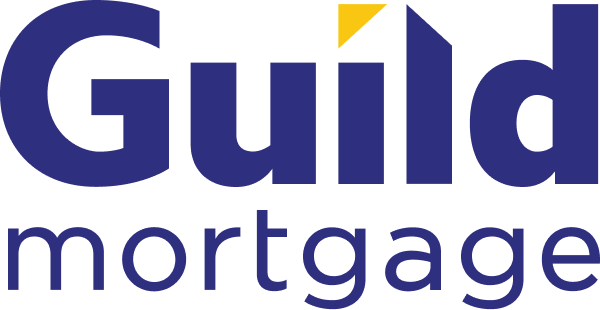Guild Mortgage is a well-established mortgage company with deep roots in traditional home lending. In recent years, it has expanded into reverse mortgages, offering families an alternative to the industry’s most prominent national players. Guild’s reputation for community-focused service sets it apart, but as a generalist lender, its reverse mortgage offerings don’t always feel as polished or specialized as those from dedicated providers.
What You'll Learn
ToggleHow Guild Reverse Mortgages Work
The process for a reverse mortgage through Guild follows the standard path: HUD counseling, loan application, appraisal, underwriting, and closing. Borrowers report that loan officers are approachable and supportive, particularly in local branch settings where in-person guidance is available.
Closing times are typical, averaging about four to six weeks. Because reverse mortgages aren’t Guild’s primary focus, some families say the process can feel less streamlined compared to lenders that specialize exclusively in this product.
Strengths and Weaknesses
Strengths
- Long history and reputation as a community-focused lender
- Local branch presence for in-person guidance
- Positive customer service track record in broader mortgage lending
Weaknesses
- Reverse mortgages are not a primary focus
- Less consistency in reverse-specific expertise across branches
- Fees are average, not exceptionally competitive.

Guild Reverse Mortgages
- Tap into your home’s equity with flexible reverse mortgage options designed to fit your retirement goals.
- Benefit from Guild’s reputation for personal service and guidance throughout the process.
- Choose from multiple reverse mortgage products, including federally insured options, to suit your needs.
- Enjoy peace of mind with a lender focused on long-term financial stability and customer care.
- Guild Reverse Mortgage Review
Guild Mortgage isn’t as widely recognized in the reverse mortgage world as Finance of America or Longbridge, but it brings decades of experience as a community-focused lender. With local branches across the country, Guild offers families the opportunity for in-person guidance. something that can be reassuring for seniors who prefer face-to-face conversations over digital-only processes.
- Pros: Face-to-face communications, community-focused
- Cons: Fees are average, reverse mortgages are not the primary focus
Company Background
Founded in 1960 in San Diego, Guild Mortgage has grown into one of the largest independent mortgage lenders in the United States. With more than 4,000 employees and branches nationwide, Guild has long emphasized community lending and strong customer relationships. Reverse mortgages are a smaller part of the company’s overall business, but it has steadily expanded this service, particularly in areas where it has a strong regional presence. For seniors, the appeal of Guild often lies in trust and accessibility — many borrowers are already familiar with Guild from their traditional mortgage experiences, and working with a familiar brand can feel reassuring.Costs and Fees
Guild’s fees are in line with industry averages. Borrowers can expect origination charges, closing costs, and FHA insurance premiums. Guild does not have a reputation for unusually high or low fees, but instead positions itself as a reliable, mid-range option.Customer Experience
The Guild earns high marks for customer service in its broader mortgage business, and this reputation extends to reverse mortgages. Borrowers often describe loan officers as patient and professional, with a willingness to clearly explain details. However, because reverse mortgages make up a smaller share of Guild’s overall lending, there are fewer customer reviews specifically about this product compared to larger players, such as Finance of America. This makes it more challenging for families to assess consistency across the company’s branch network.How Guild Compares
Compared to Finance of America or Liberty, Guild feels smaller in the reverse mortgage market but has the advantage of deep community roots. Families who already know Guild from past home loans may feel more comfortable sticking with a familiar lender. For those seeking specialized products or industry-leading reverse mortgage expertise, dedicated providers like Longbridge or Finance of America may be a stronger fit.Rating Scale
We compared Guild reverse mortgages against those of the best reverse mortgage companies across four core categories. Here’s how it stacked up.- Customer Experience: (4.0/5)
- Fees & Costs: (4.0/5)
- Product Options: (3.5/5)
- Speed of Process: (4.0/5)
- Overall Score: (3.9/5)
AssistedKin’s Top 5 Reverse Mortgage Companies
| Lender | Recommended For | Key Strength | Editor's Rating | Next Steps |
|---|---|---|---|---|
| Longbridge Financial | Best for Customer Support | Patient, detailed guidance with no monthly servicing fees | 4.2 | Explore Loan Options |
| All Reverse Mortgage (ARLO) | Best for Transparency | Online calculator and consistently strong customer reviews | 4.4 | Explore Loan Options |
| Mutual of Omaha | Best for Trust Factor | Backed by a century-old brand trusted by millions of households | 4.0 | Explore Loan Options |
| Guild Mortgage | Best for Community Lending | Long history and local branch presence for in-person service | 3.9 | Explore Loan Options |
| Finance of America Reverse | Best for Product Options | Wide range of loans, including jumbo/proprietary reverse mortgages | 4.3 | Explore Loan Options |
Final Thoughts
Guild Mortgage brings stability and a community-focused approach to the reverse mortgage market. While not the most specialized or innovative lender, it reassures families that they are working with a long-standing mortgage company that values relationships. For seniors who prefer face-to-face service and already trust Guild, it can be a strong option, though those seeking the lowest costs or most advanced products may find better fits elsewhere.
Frequently Asked Questions
Answers to common questions about Guild reverse mortgages.
No. Reverse mortgages are a smaller part of Guild’s overall business, though they are offered alongside traditional mortgages.
They’re average — not unusually low, but not out of line with industry norms.
Typically, four to six weeks, similar to most national lenders.
Seniors who already know Guild or who want a lender with local branches and a strong community presence.
